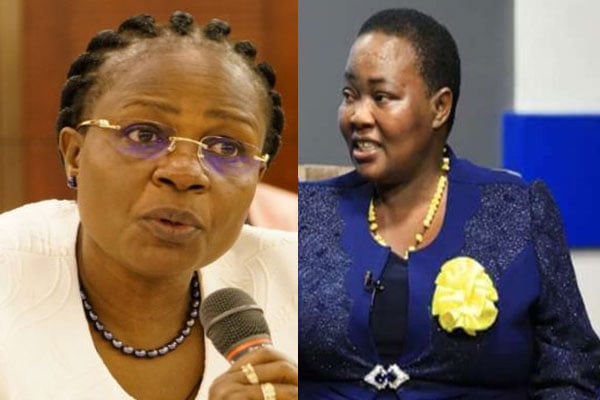Prime
Claiming space in global policy agenda

Emilly Comfort Maractho
What you need to know:
- The question for most development actors is whether one is to be invited to the table or to claim that space.
Attending the National Security Symposium 2023 on ‘contemporary security challenges: the African Perspective’, changed my opinion of Rwanda and challenged my assumptions about the country. In a four-part series, I look at some specific areas where Rwanda seems to have done well, and the implications. This fourth and final part looks at Rwanda’s place in the global policy arena.
The most trending thing going around on social media in the last week is Kenyan President William Ruto claiming that ‘our absence on the table means that we are on the menu’. It appears to have resonated with many people.
The question for most development actors is whether one is to be invited to the table or to claim that space. From the symposium, I got the sense that Rwanda decided to take its place, rather than wait to be invited.
And, they are claiming significant space on a number of global policy issues. From gender, climate change, human security to international trade.
At the Africa Policy Centre, which I have been leading for some time, it is our belief that part of the problem that Africa grapples with is the absence of critical African voices in the global policy making process. It has contributed to most failed development experiments pushed by global actors. Indeed, increasingly that space is being created and some actors from Africa invited to key debates. How effective these invited voices are in changing the global policy narrative especially on poverty reduction and development is a subject for another day.
Two specific sessions focused on continental trade and the impact of digital technologies on economic development were especially telling, in as far as Rwanda’s interests are. What are some of the practical things that Rwanda has done to claim their space in the global policy agenda?
For some time now, the country has become a hot destination for international events. Global and regional meetings flock to the capital, Kigali. Not that they have the best infrastructure in the region, say in comparison to Nairobi and others. Yet, they have managed to brand themselves as a meeting place of value for international policy discussions. It has meant that while the meetings are happening in their backyard, they have home advantage, to have more people from Rwanda attend and to be at the centre of the big decisions.
We were told, how the venue of the symposium, Kigali Convention Centre had housed the memory of signing many international agreements and also testament to the many global conversations happening there. I know at least two international conferences in media and communication space happening in Rwanda this year, including the annual African Women in Media Conference.
Such is the determination of the Rwandan government to provide space for such meetings and to be part of those critical discussions. Skilling young people has also been an important part of claiming their space. Kigali with its alluring beauty is likely to become an educational centre and work space for young people with digital skills ready to innovate and explore. They have ensured the infrastructure is there.
I have noted elsewhere, that it appears that the Rwandan government has done something right, maybe a lot of things right. The test will be in keeping this going. Whether it is a security factor or the deliberate attempt to cultivate their sense of community and culture, one prays and hopes, that this will continue without major compromises to common human values such as the ones some of us now grapple with.
I remember as a young student of development, reading a lot of literature on Uganda as a post conflict success story in the early 2000s. The world seemed to marvel at how Kampala did it. And what we know now seems to suggest some of those gains have been deeply eroded.
One hopes, a decade or so from now, Rwandans will not be exhibiting pot holes in the hope of getting their government’s attention. Again, the point is not to make a baseless comparison, but to suggest, that if the leadership is not deliberate, many of the gains we now marvel at in Rwanda will eventually erode. They need to keep challenging themselves, and thinking creatively.
In short, Rwanda cannot afford to be complacent in the face of their current phenomenal success. As African leaders speak tough on claiming space on the table, they need to walk the talk, appear to be serious in their actions that the solutions can actually come from within the continent and most importantly, be part of the global policy agenda with critical knowledge.
I look forward to many other visits to Rwanda, beyond Kigali, to learn more about their national transformation journey. No doubt, this visit both changed my perspective and demonstrated our common capacity to rise above adversity.
Emilly Maractho (PhD) is the director of Africa Policy Centre and senior lecturer at Uganda Christian University.



